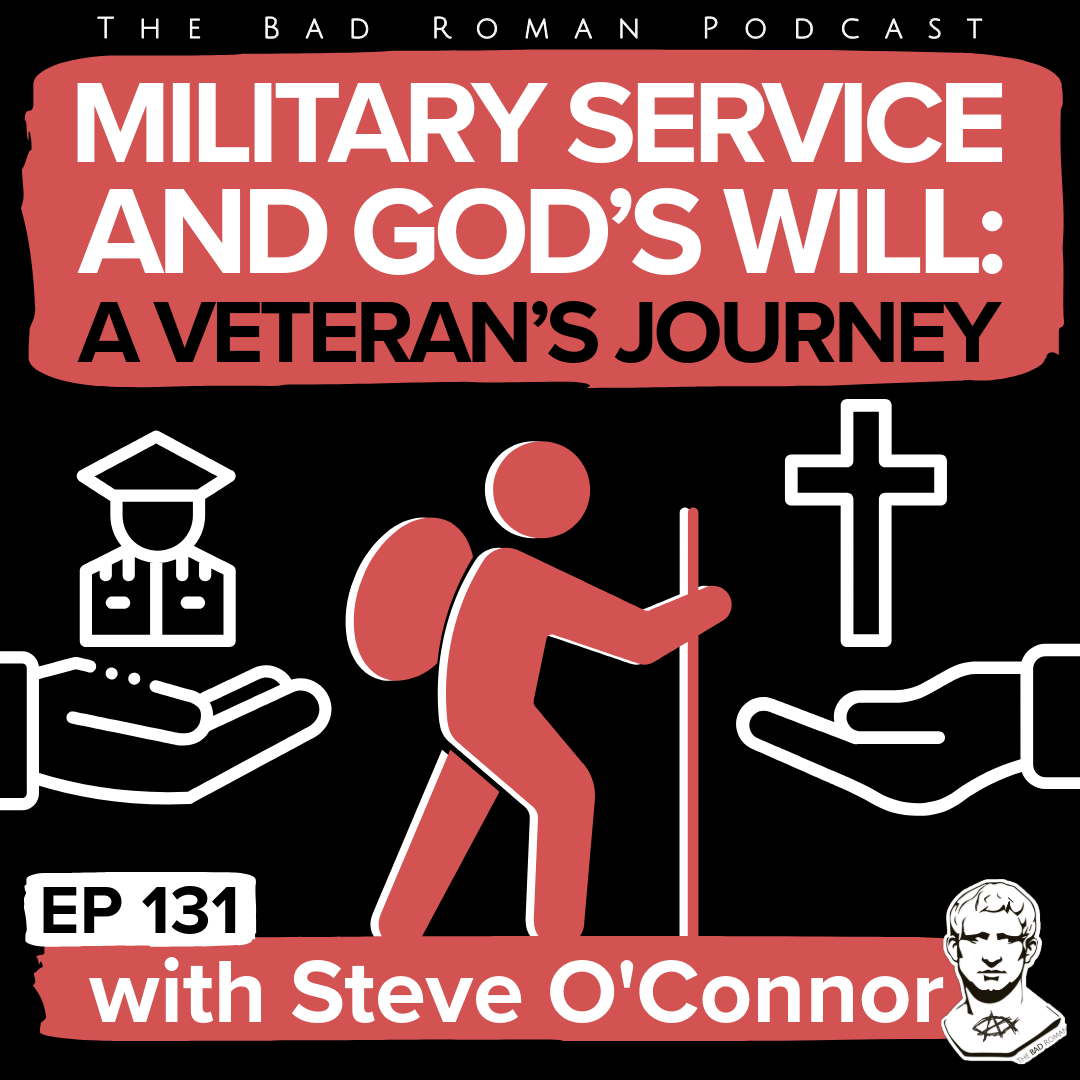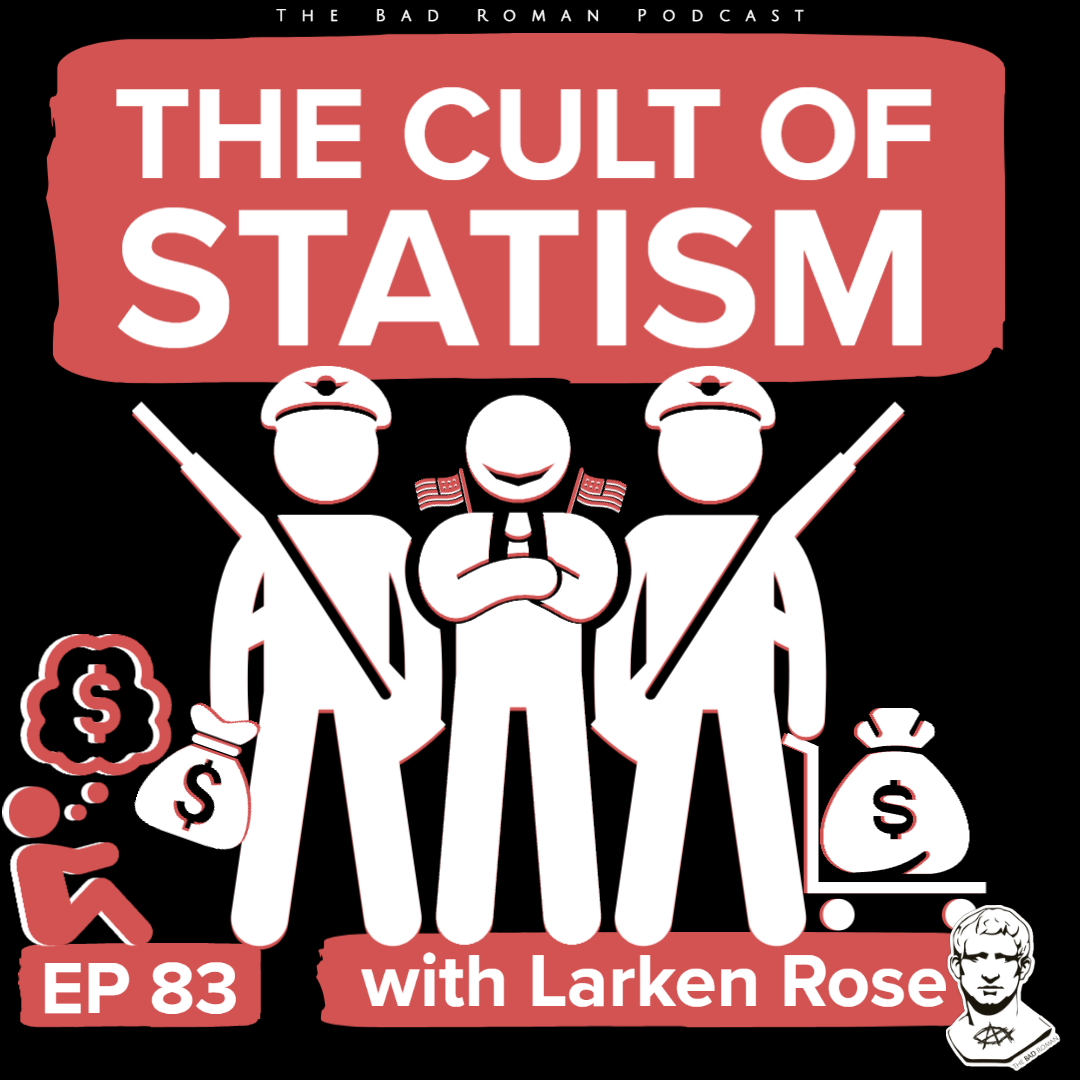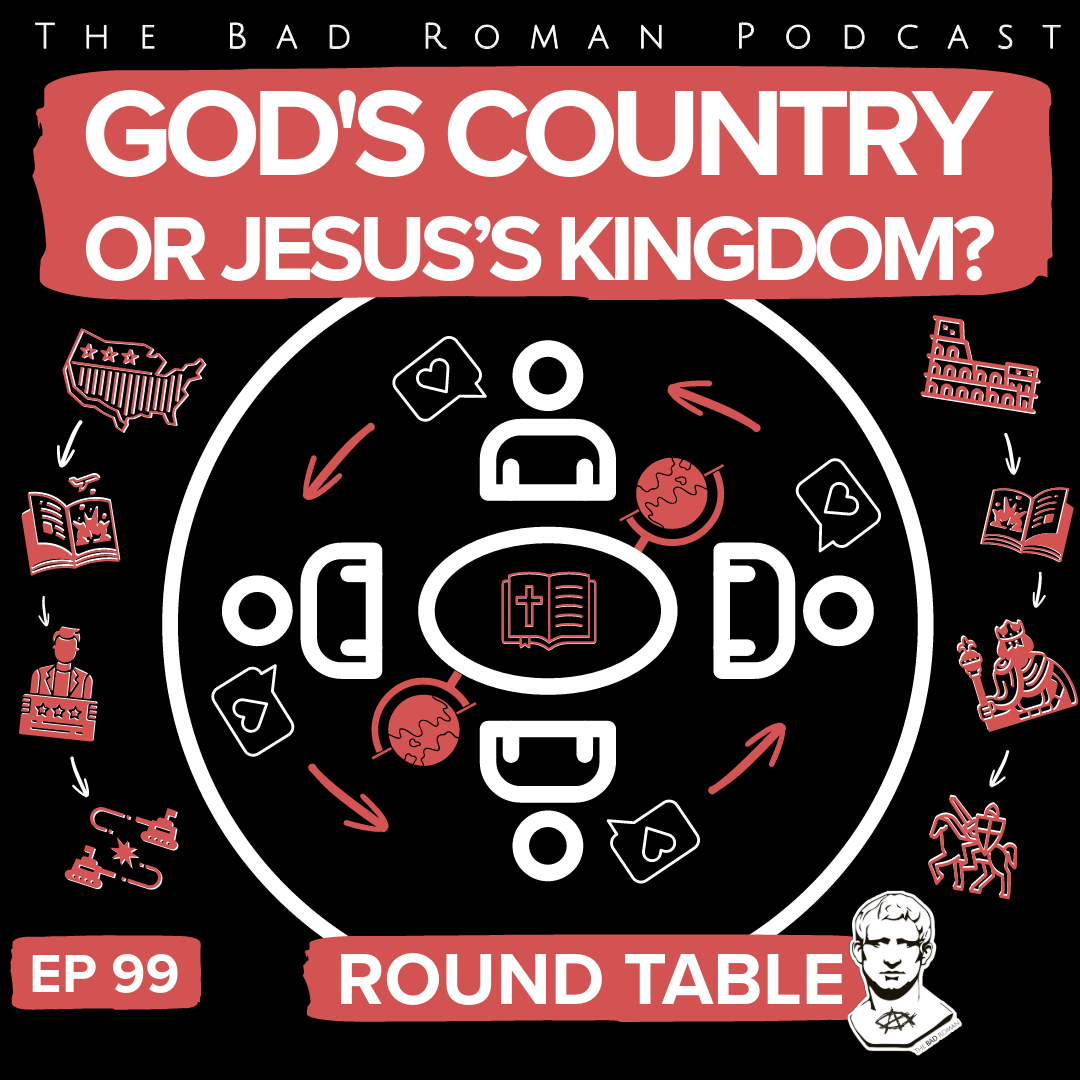About this Episode
In this eye-opening episode of the Bad Roman Podcast, host Craig Harguess sits down with Steve O'Connor, a former Marine who shares his powerful journey from military service to embracing a Christ-centered life. Steve's story challenges conventional wisdom about patriotism, military service, and what it truly means to follow Jesus.
The Allure of Military Service
Steve's path to the military was paved with family tradition and societal expectations. Growing up in a family with deep military roots, he was captivated by the idea of serving his country from a young age. The events of 9/11 further solidified his resolve to join the armed forces.
"I wasn't a great student and so they, they always say, oh well, you know, if you're not great in school, the military is perfect place for you," Steve recalls. This common narrative, coupled with family pride and a desire to defend his country, led him to enlist in the Marine Corps.
Key Insight: Many young people are drawn to military service through a combination of family expectations, societal pressure, and a genuine desire to serve. However, this decision often comes without a full understanding of the implications.
The Reality of Military Life
Steve's experiences in the military were far from the romanticized version often portrayed in recruitment ads. He deployed three times in four years, missing significant milestones in his family life, including the birth of his son. The physical and emotional toll was immense:
Broken back
Dislocated shoulders
Knee injuries
Sleep apnea
PTSD and anxiety
"I scream at night. I don't remember my dreams," Steve shares, highlighting the lasting impact of his service.
Challenge: Veterans often struggle with the disconnect between their expectations of military service and the harsh realities they face. This can lead to profound physical and emotional challenges that persist long after their service ends.
A Spiritual Awakening
The turning point in Steve's journey came during a Memorial Day celebration in 2017. As he recited the Pledge of Allegiance, he had a sudden realization:
"I pledge allegiance to the flag of the United States of America. And I said that first line, I was like, what? In my brain, I'm just like, what in the hell am I doing? What is this garbage I am saying?"
This moment sparked a deep reevaluation of his beliefs and values, leading Steve to question the relationship between his faith and his allegiance to the state.
Key Takeaway: True spiritual growth often requires us to challenge deeply ingrained beliefs and societal norms. Steve's experience shows how a single moment of clarity can set in motion a profound transformation.
Redefining Patriotism and Faith
As Steve delved deeper into the teachings of Jesus, he began to see a stark contrast between Christ's message of peace and love and the violence inherent in military service. He came to a powerful conclusion:
"God does not want your son [or daughter] joining the military”
This realization has led Steve to approach conversations about military service with honesty and a focus on the teachings of Christ. He now sees his role as helping others, especially young people considering or in military service, to understand the full implications of that choice.
Practical Advice: When discussing military service with others, especially young people, Steve aims to:
Be honest about the physical and emotional toll of service
Encourage reflection on how military service aligns (or doesn't) with one's faith and values
Present alternative ways to serve one's community and country
The Ongoing Journey
Steve's transformation is still a work in progress. He grapples with how to live out his newfound convictions in a community deeply entrenched in military culture. His story serves as a powerful reminder that true faith often requires us to challenge societal norms and expectations.
What We Learned About Faith, Patriotism, and Service
Steve's journey from soldier to peacemaker offers valuable lessons for all of us:
Question societal norms: Don't accept traditional narratives about patriotism and service without critical examination.
Align actions with beliefs: Regularly evaluate whether your actions truly reflect your core values and faith.
Embrace transformation: Be open to changing long-held beliefs when confronted with new insights or spiritual growth.
Share your story: Your experiences, even (or especially) the challenging ones, can help others navigate their own journeys.
Steve's story challenges us to reconsider what it truly means to serve God and our fellow humans. It reminds us that sometimes, the most patriotic act is to question and challenge the status quo in pursuit of a more peaceful, Christ-centered world.
Are you ready to reevaluate your own beliefs about patriotism, service, and faith? Listen to the full episode to dive deeper into Steve's transformative journey and discover how it might inspire changes in your own life.
Episode Timestamps:
(0:53) Steve's background and military service
Family history of military service
Influence of 9/11 on Steve's decision to join the military
Multiple deployments to Iraq and Afghanistan
(5:20) Steve's religious background and conversion
Raised with mixed Catholic and Christian Science influences
Became a Christian through his wife's influence
(7:27) Steve's military career and deployments
Three tours in four years as intelligence personnel
Experiences in combat and military operations
Reference to Generation Kill (HBO Series)
(11:48) Steve's awakening to the issues with military service
Realization during a Memorial Day celebration in 2017
Recognition of the American flag as a "golden calf"
(14:09) Discussion on current military recruitment challenges
Declining recruitment numbers and possible reasons
Steve's perspective on the lack of active conflicts
(21:23) Steve's struggle with past actions and beliefs
Grappling with the idea that military service wasn't God's will
Impact on mental health and PTSD
Reference to 1st Samuel 8 (Bible Verse)
(29:13) Steve's family life and the impact of military service
Missing his son's birth during deployment
Challenges in reconnecting with family after long absences
(42:52) Conversations with others about military service
Approach to discussing military realities with potential recruits
Balancing honesty about hardships with respect for beliefs
(50:36) Steve's evolving perspective on patriotism and symbolism
Discomfort with excessive flag displays and national anthems
Recognizing the brainwashing aspect of patriotic rituals
Blue Angels are still cool though
(59:36) Conclusion and future plans
Encouragement for Steve to start writing about his experiences
Potential for future discussions on the podcast.








































